Chronic Fatigue Syndrome (CFS) and Myalgic Encephalomyelitis (ME) are complex conditions marked by severe, persistent fatigue and other debilitating symptoms. Proper nutrition plays a crucial role in managing CFS/ME by providing essential nutrients for cellular function, energy production, and overall well-being.
Here are 10 key nutrients that may help manage CFS/ME symptoms:
| Nutrient | Key Benefits |
|---|---|
| 1. Vitamin B12 | Reduced fatigue, improved cognitive function, nerve support |
| 2. Magnesium | Improved muscle function, reduced cramps, better sleep, reduced anxiety/depression |
| 3. Omega-3 Fatty Acids | Reduced inflammation, improved brain function, decreased pain |
| 4. Coenzyme Q10 | Improved energy levels, enhanced exercise tolerance, cardiovascular support |
| 5. Vitamin D | Improved immune function, reduced fatigue, reduced inflammation |
| 6. L-Carnitine | Improved energy levels, enhanced muscle function, cognitive support |
| 7. Zinc | Stronger immune system, better wound healing, reduced oxidative stress |
| 8. Iron | Boosted energy, improved brain fog, supported immunity, increased endurance |
| 9. Probiotics | Better gut health, stronger immunity, reduced inflammation, improved brain function |
| 10. Vitamin C | Immune support, reduced inflammation, improved energy, adrenal support, wound healing |
While dietary sources are preferable, supplements can help fill nutritional gaps. However, it’s essential to consult with a qualified healthcare provider before starting any supplement regimen, as improper dosages or interactions can potentially cause harm.
Related video from YouTube
1. Vitamin B12
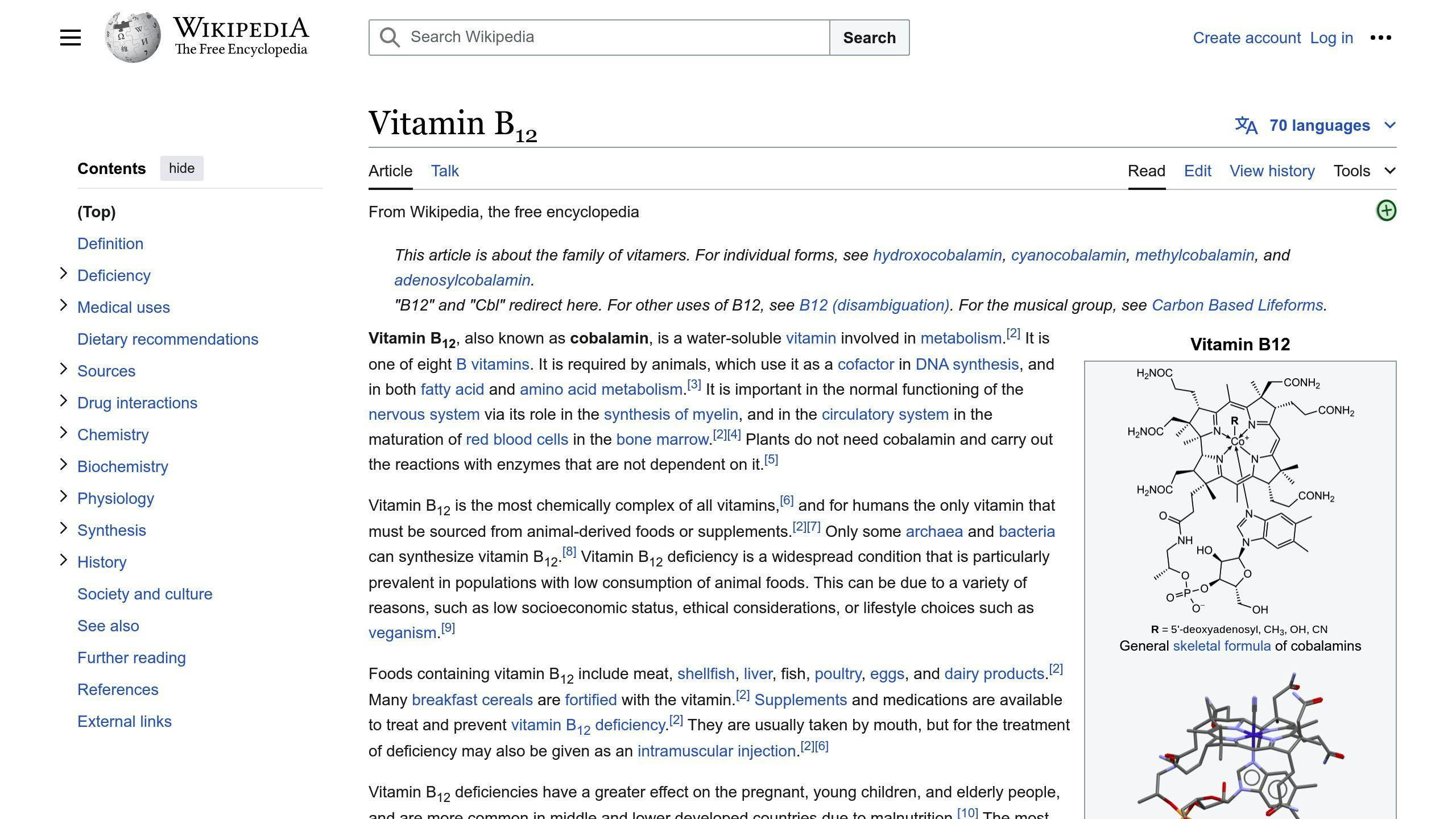
What It Is
Vitamin B12 is a water-soluble vitamin needed for:
- Making red blood cells
- Building DNA
- Keeping nerves healthy
- Producing energy
A lack of vitamin B12 can cause fatigue, weakness, memory troubles, and nerve issues.
Food Sources
Vitamin B12 comes from animal foods like:
- Meat (beef, chicken, pork)
- Fish and shellfish
- Eggs
- Dairy (milk, yogurt, cheese)
Some plant-based foods like cereals and plant milks have added vitamin B12.
Supplement Type
For CFS/ME, take the methylcobalamin form of vitamin B12. This type is easier for the body to absorb and use.
Dosage
The suggested dose is 1000 to 5000 mcg (micrograms) per day. Talk to your doctor to find the right amount based on your needs and blood levels.
Potential Benefits
Taking vitamin B12 may help with:
- More energy, less fatigue
- Better thinking and focus
- Healthier nerves, fewer nerve symptoms
- Better red blood cell and oxygen supply
While vitamin B12 can be helpful, it should be part of an overall plan for managing CFS/ME. This may include diet changes, lifestyle adjustments, and medical treatments as advised by your healthcare provider.
2. Magnesium
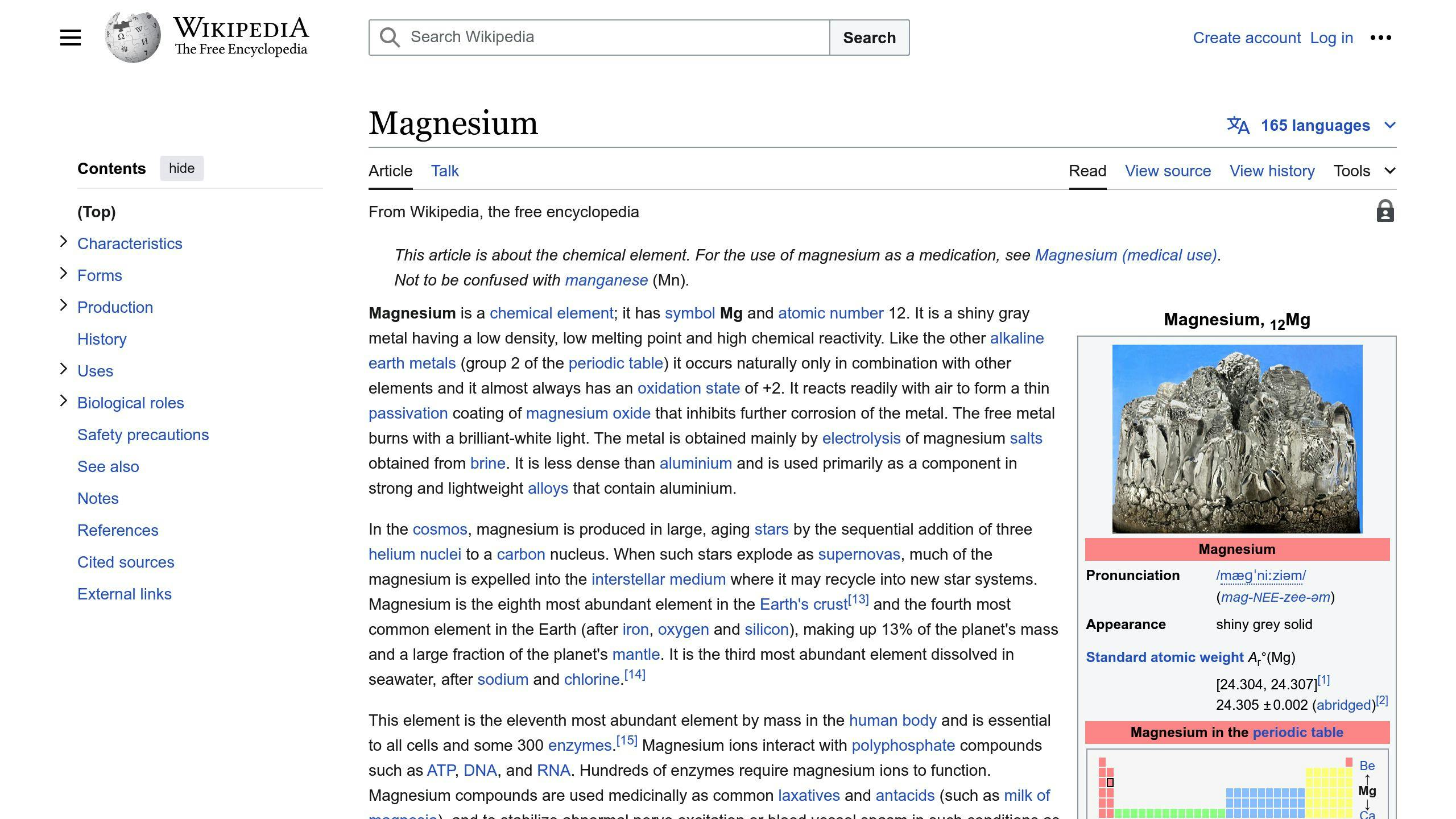
What It Is
Magnesium is a mineral that plays a key role in:
- Muscle function
- Energy production
- Nerve transmission
It’s involved in over 300 reactions in the body, including those related to ATP (the main energy source for cells). Many with CFS/ME have low magnesium levels, which can contribute to muscle weakness, fatigue, and brain fog.
Food Sources
Good sources of magnesium include:
| Food Group | Examples |
|---|---|
| Nuts and Seeds | Almonds, cashews, pumpkin seeds |
| Whole Grains | Brown rice, quinoa, oats |
| Leafy Greens | Spinach, kale, Swiss chard |
| Legumes | Black beans, lentils, edamame |
| Other | Avocados |
Supplement Type
For CFS/ME, consider:
- Magnesium glycinate
- Magnesium malate
These forms are well-absorbed and less likely to cause stomach issues compared to magnesium oxide.
Dosage
The suggested daily dose is 400 to 800 mg, split into 2 or 3 doses. Consult your doctor to determine the right amount based on your needs and blood levels.
Potential Benefits
Getting enough magnesium may help with:
- Improved muscle function and reduced cramps
- More energy and less fatigue
- Better sleep quality
- Reduced anxiety and depression
- Improved focus and concentration
3. Omega-3 Fatty Acids
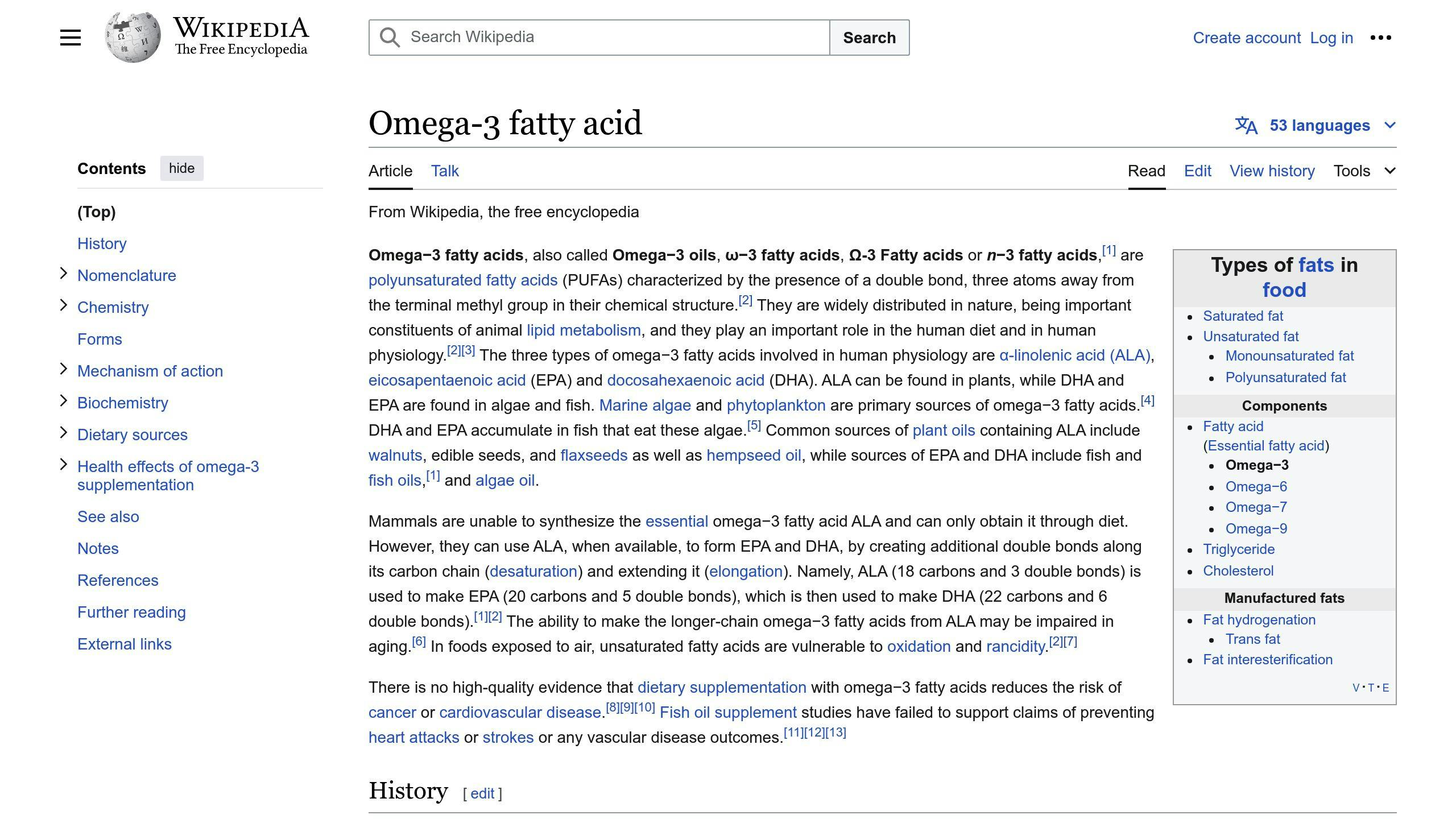
What They Are
Omega-3 fatty acids are a type of fat that the body cannot make on its own. They must come from food or supplements. The two main omega-3s are:
- EPA (eicosapentaenoic acid)
- DHA (docosahexaenoic acid)
These fats help reduce inflammation and keep the brain healthy.
Food Sources
The best foods with omega-3s are:
| Food | Omega-3 Content |
|---|---|
| Fatty fish (salmon, mackerel, sardines) | High in EPA and DHA |
| Flaxseeds and chia seeds | High in ALA (a type of omega-3) |
| Walnuts | Moderate amount of ALA |
| Algae oil | High in DHA (plant-based source) |
Supplement Type
For CFS/ME, the best omega-3 supplements are:
- Fish oil: Provides EPA and DHA in concentrated form.
- Algae-based: Plant-based source of DHA.
Look for supplements with more EPA than DHA, as EPA is better at reducing inflammation.
Dosage
The typical dosage for CFS/ME is 1,000 to 3,000 mg per day, split into 2 or 3 doses. Talk to your doctor to find the right amount for you.
Potential Benefits
Getting enough omega-3s may help with:
- Reducing inflammation: Omega-3s can lower inflammation, which is common in CFS/ME.
- Improving brain function: DHA supports brain health and may help with brain fog.
- Decreasing pain: The anti-inflammatory effects may reduce joint and muscle aches.
- Heart health: Omega-3s can benefit the cardiovascular system, which is often affected in CFS/ME.
4. Coenzyme Q10 (CoQ10)
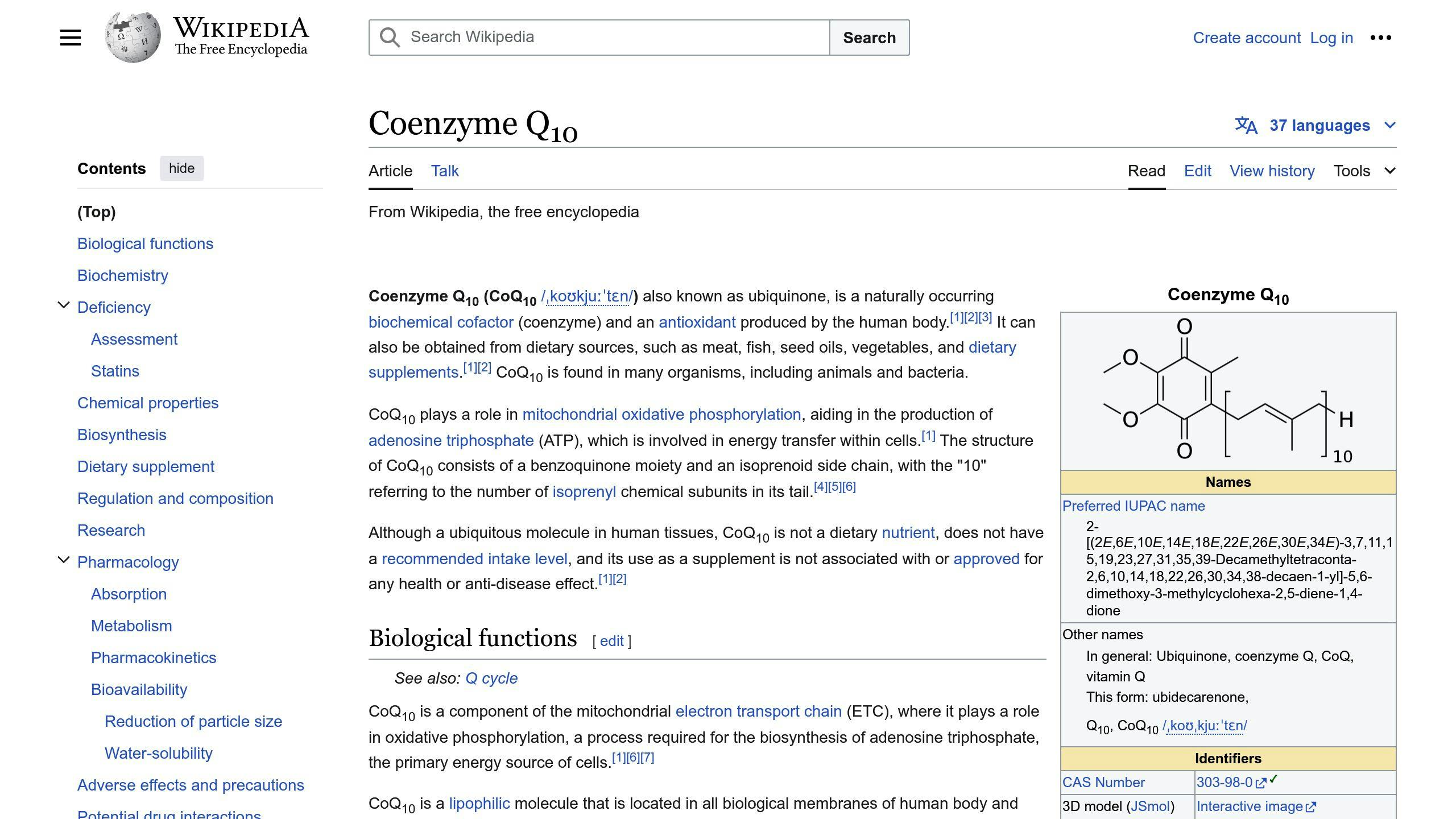
What It Is
Coenzyme Q10 (CoQ10), also known as ubiquinone, is a vitamin-like compound found in the body. It plays a key role in energy production within cells. CoQ10 is found in the mitochondria, the powerhouses of cells, where it helps convert nutrients into energy (ATP). It is crucial for the proper functioning of the energy-making process.
Food Sources
While the body makes some CoQ10, levels can drop with age or certain health issues. Dietary sources of CoQ10 include:
| Food | CoQ10 Content |
|---|---|
| Organ meats (heart, liver, kidney) | High |
| Fatty fish (salmon, tuna, mackerel) | Moderate |
| Spinach and other leafy greens | Moderate |
| Legumes (soybeans, lentils, peanuts) | Moderate |
| Whole grains | Low |
Supplement Type
CoQ10 supplements come in two forms:
- Ubiquinone: The oxidized form.
- Ubiquinol: The reduced, more easily absorbed form.
For CFS/ME, the ubiquinol form is often recommended as it may be better utilized by the body.
Dosage
The typical recommended dosage of CoQ10 for CFS/ME ranges from 300 to 400 mg per day, divided into two doses. Consult with your healthcare provider to determine the appropriate dosage for your individual needs and any potential interactions with medications or existing health conditions.
Potential Benefits
CoQ10 supplementation may offer several potential benefits for individuals with CFS/ME, including:
-
Improved energy levels and reduced fatigue: By supporting mitochondrial function and ATP production, CoQ10 may help alleviate the debilitating fatigue associated with CFS/ME.
-
Enhanced exercise tolerance: CoQ10 may improve exercise performance and reduce exercise-induced oxidative stress, which can be particularly beneficial for individuals with CFS/ME who often experience post-exertional malaise.
-
Cardiovascular support: CoQ10’s antioxidant properties may help protect the heart and blood vessels from oxidative damage, potentially benefiting individuals with CFS/ME who may experience cardiovascular complications.
-
Cognitive function support: As CoQ10 plays a role in energy production and antioxidant defense, it may help improve cognitive function and alleviate brain fog, a common symptom in CFS/ME.
-
Reduced inflammation: CoQ10’s anti-inflammatory properties may help mitigate the chronic inflammation often present in CFS/ME, potentially reducing associated symptoms such as muscle pain and joint discomfort.
While CoQ10 supplementation shows promise in managing CFS/ME symptoms, more research is needed to fully understand its efficacy and optimal dosing. As with any supplement, it’s crucial to consult with a healthcare professional before starting supplementation, especially if you have any underlying medical conditions or are taking medications.
5. Vitamin D
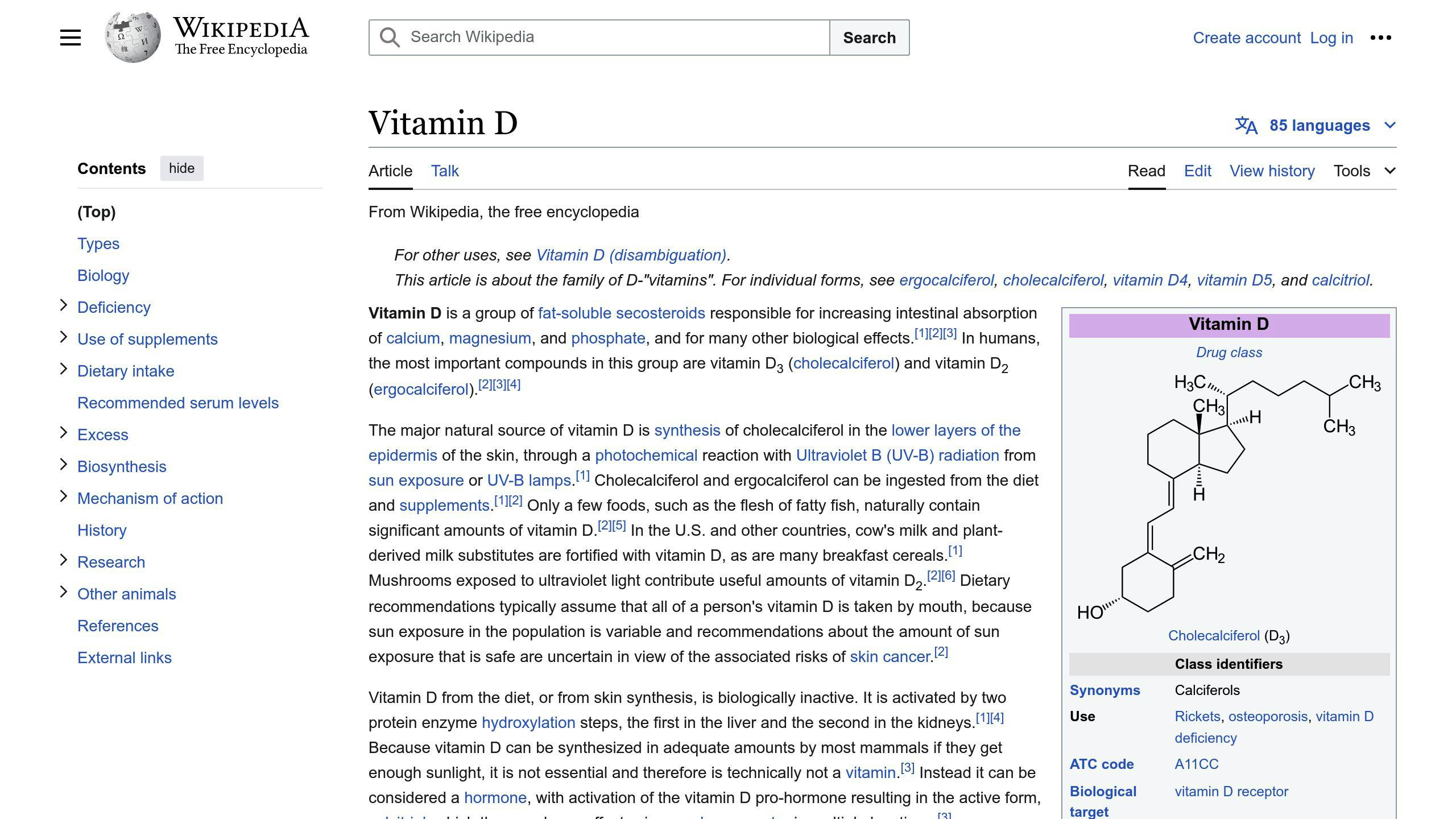
What It Is
Vitamin D is a fat-soluble vitamin that plays a key role in:
- Regulating the immune system
- Maintaining bone health
- Reducing inflammation
It helps the body absorb calcium and phosphate, which are vital for strong bones and teeth. Vitamin D also modulates the immune system and has anti-inflammatory properties.
Food Sources
Vitamin D is found in very few foods, making it hard to get enough from diet alone. The best food sources include:
- Fatty fish like salmon, tuna, and mackerel
- Egg yolks
- Fortified dairy products like milk and yogurt
- Fortified plant-based milk alternatives
However, most people get vitamin D from exposure to sunlight, as it is produced in the skin when exposed to ultraviolet B (UVB) rays.
Supplement Type
For supplements, vitamin D3 (cholecalciferol) is recommended. It is more easily absorbed and effective at raising vitamin D levels in the body compared to vitamin D2 (ergocalciferol).
Dosage
The recommended daily intake of vitamin D for adults is typically around 1000 IU (25 mcg). However, the optimal dosage can vary based on factors like age, body weight, and baseline vitamin D levels. It’s best to have your blood levels tested and consult with a healthcare professional to determine the appropriate dosage for your needs.
Potential Benefits
Adequate vitamin D levels are important for individuals with CFS/ME, as it may offer the following benefits:
- Improved immune function: Vitamin D helps regulate the immune system, which is often dysregulated in CFS/ME patients.
- Reduced fatigue: Low vitamin D levels have been linked to increased fatigue and muscle weakness, while supplementation may help alleviate these symptoms.
- Reduced inflammation: Vitamin D has anti-inflammatory properties, which may help mitigate the chronic inflammation often present in CFS/ME.
- Bone health: Vitamin D is essential for maintaining strong bones and preventing conditions like osteoporosis, which can be a concern for individuals with limited physical activity.
- Overall health support: Vitamin D is involved in various physiological processes, and maintaining adequate levels may contribute to overall well-being and potentially alleviate some of the multi-systemic symptoms associated with CFS/ME.
While vitamin D supplementation may provide benefits, it should be considered as part of a comprehensive treatment approach for CFS/ME, in conjunction with other lifestyle modifications and therapies as recommended by healthcare professionals.
sbb-itb-cf04d29
6. L-Carnitine
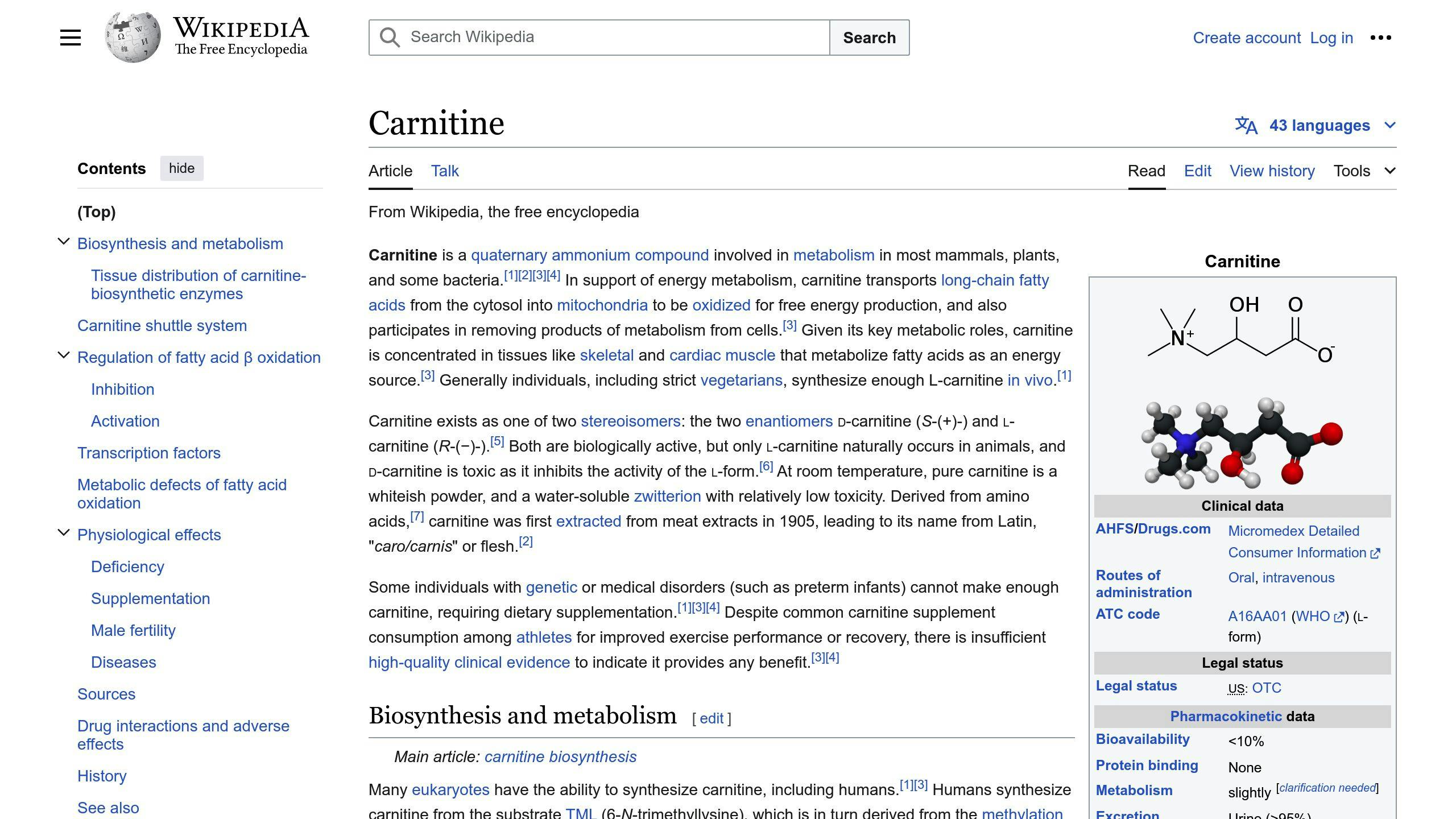
What It Is
L-Carnitine is a compound found naturally in the body. It plays a key role in energy production by transporting fatty acids into the mitochondria (the cell’s powerhouses). There, the fatty acids are broken down and turned into energy. L-Carnitine is vital for proper mitochondrial function and metabolism.
Food Sources
L-Carnitine is mainly found in animal-based foods, such as:
| Food | L-Carnitine Content |
|---|---|
| Red meat (beef, lamb) | High |
| Poultry (chicken, turkey) | High |
| Fish (cod, tuna, salmon) | High |
| Dairy products (milk, cheese, yogurt) | Moderate |
Plant-based foods are generally low in L-Carnitine, making it hard for vegetarians and vegans to get enough from diet alone.
Supplement Type
The most common supplement form is Acetyl-L-Carnitine (ALCAR). ALCAR is a more easily absorbed form of L-Carnitine that can cross the blood-brain barrier, potentially offering cognitive benefits.
Dosage
The recommended dosage of L-Carnitine supplements for individuals with CFS/ME typically ranges from 500 mg to 2000 mg per day. Consult with a healthcare professional to determine the appropriate dosage based on your individual needs and medical history.
Potential Benefits
L-Carnitine supplementation may offer several potential benefits for individuals with CFS/ME:
- Improved energy levels: By helping with fatty acid metabolism and energy production, L-Carnitine can help reduce fatigue and improve overall energy levels.
- Enhanced muscle function: L-Carnitine supports muscle recovery and may help reduce muscle weakness and pain, which are common symptoms in CFS/ME.
- Cognitive support: Acetyl-L-Carnitine, in particular, has been associated with improved cognitive function, including better focus, concentration, and memory.
- Reduced oxidative stress: L-Carnitine has antioxidant properties and may help mitigate oxidative stress, which is often elevated in CFS/ME patients.
It’s important to note that while L-Carnitine supplementation can be helpful, it should be part of a comprehensive treatment approach that includes other lifestyle modifications and therapies as recommended by healthcare professionals.
7. Zinc
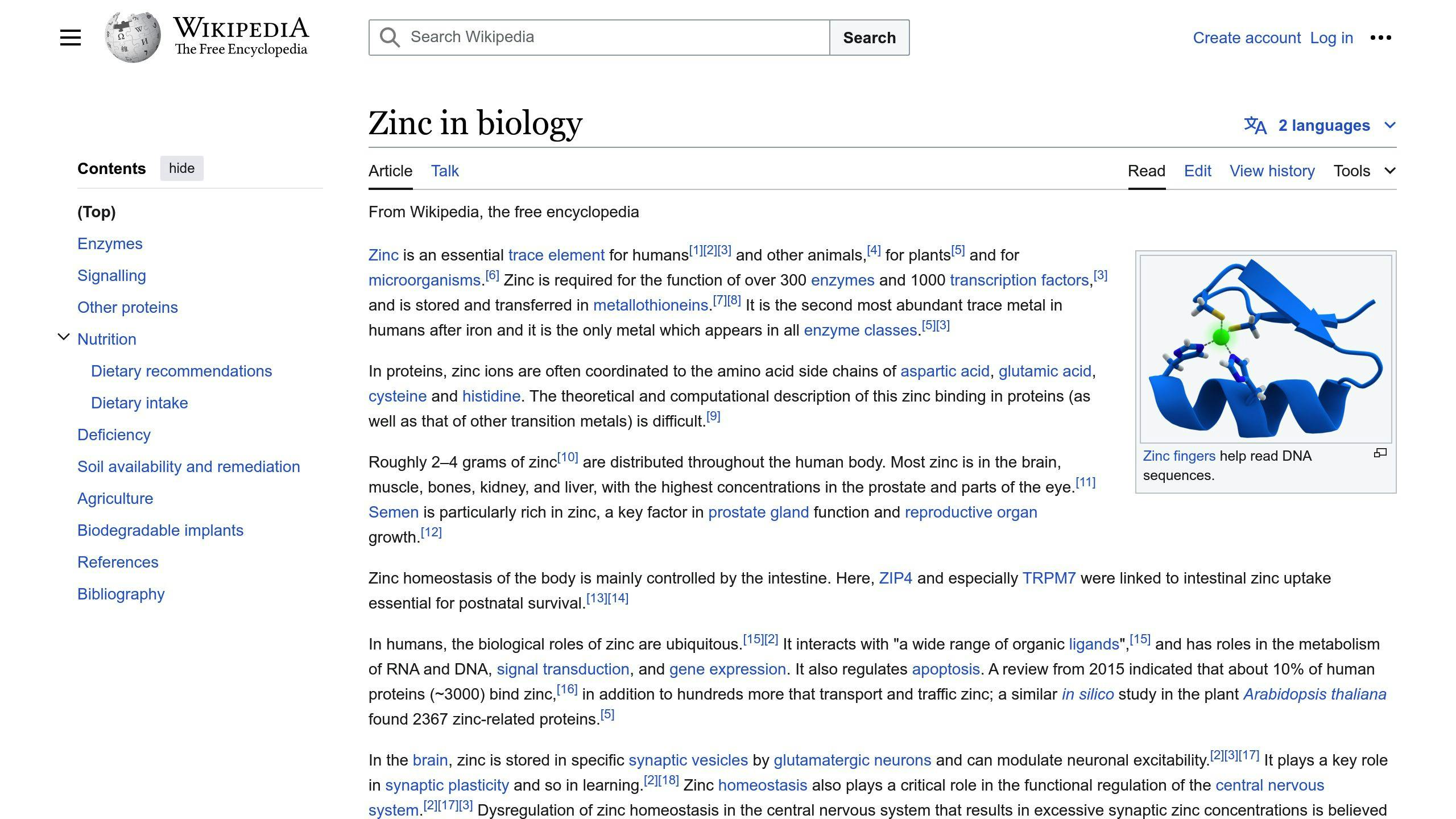
What It Is
Zinc is a mineral that helps the immune system work properly. It plays a role in:
- Healing wounds
- Building DNA
- Allowing proteins to function correctly
Not having enough zinc can weaken the immune system and make you more prone to infections.
Food Sources
Good sources of zinc include:
| Food | Zinc Content |
|---|---|
| Oysters | Very high |
| Red meat (beef, lamb) | High |
| Poultry (chicken, turkey) | Moderate |
| Legumes (lentils, beans) | Moderate |
| Seeds (pumpkin, sesame) | Moderate |
| Nuts (cashews, almonds) | Moderate |
| Whole grains | Low |
Supplement Type
For supplements, zinc gluconate and zinc picolinate are recommended. These forms are easier for the body to absorb and use.
Dosage
The suggested dosage of zinc supplements for CFS/ME is typically 20 to 40 mg per day. However, it’s important to talk to your doctor to determine the right amount for you. Taking too much zinc can cause side effects.
Potential Benefits
Zinc supplements may offer these benefits for CFS/ME:
- Stronger immune system: Zinc helps immune cells like T cells, B cells, and natural killer cells work properly.
- Better wound healing: Zinc is needed for new skin cells to form and for collagen production.
- Less oxidative stress: Zinc has antioxidant properties that may reduce oxidative stress, which is common in CFS/ME.
- Improved cognitive function: Some studies suggest zinc may help with focus, concentration, and memory in CFS/ME.
While zinc can be helpful, it should be part of an overall treatment plan that includes other lifestyle changes and therapies recommended by your healthcare provider.
8. Iron
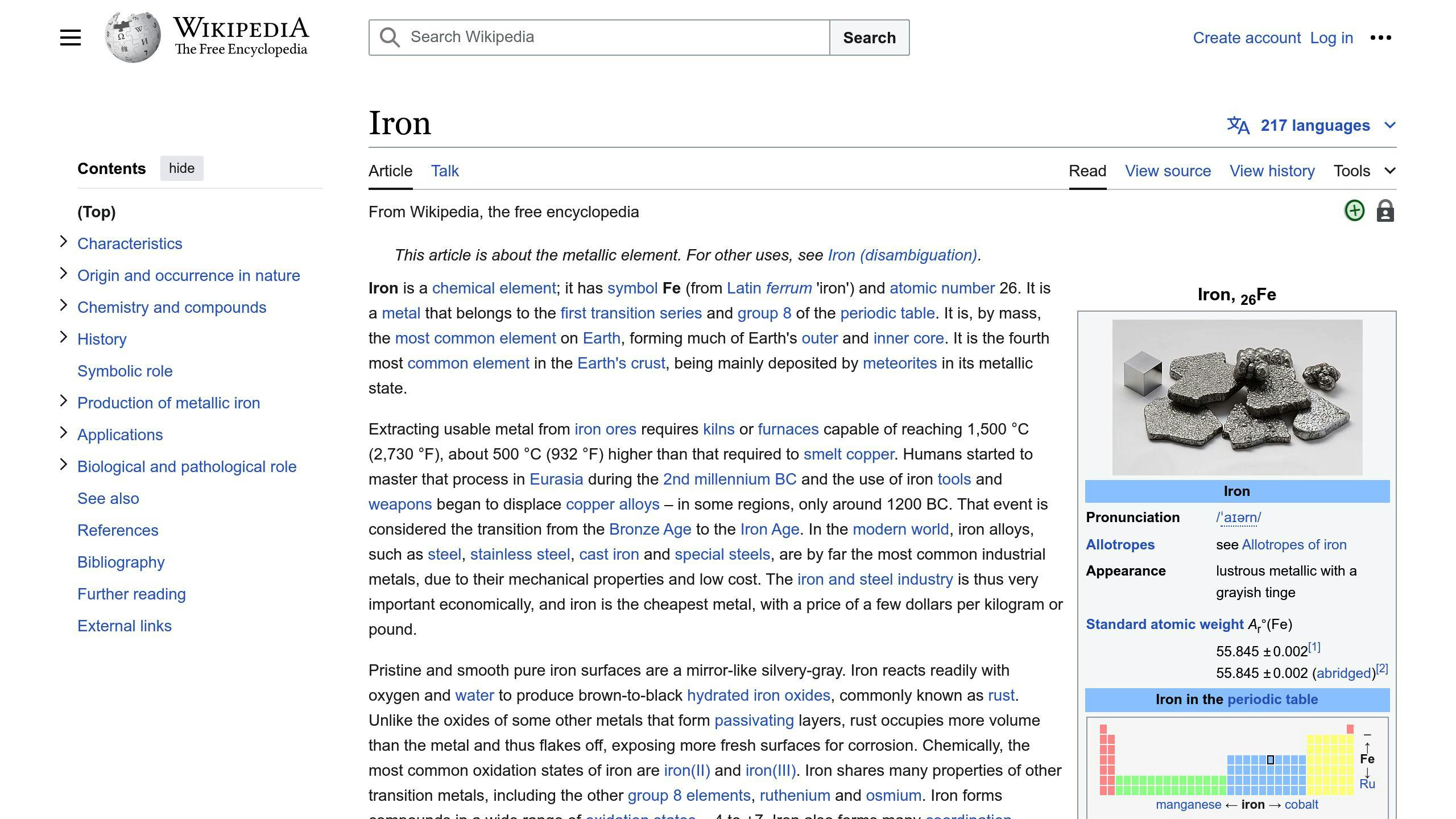
What It Is
Iron is a mineral that helps make hemoglobin, a protein in red blood cells. Hemoglobin carries oxygen to all parts of the body. Iron is key for energy and feeling energized.
Food Sources
Foods high in iron include:
| Food | Iron Content |
|---|---|
| Beef liver | Very high |
| Oysters | High |
| Lentils | Moderate |
| Spinach | Moderate |
| Red meat | Moderate |
| Poultry | Moderate |
| Tuna | Moderate |
Supplement Type
For iron supplements:
- Ferrous sulfate is a common, low-cost option. But it can cause stomach issues for some.
- Ferrous bisglycinate and iron protein succinylate are gentler forms that are easier on the stomach and better absorbed.
Dosage
The suggested iron supplement dosage depends on your needs and if you have anemia:
- Women: 18 mg per day
- Men: 8 mg per day
Talk to your doctor to find the right dosage based on your iron levels and overall health.
Potential Benefits
Getting enough iron may help with CFS/ME by:
- Boosting energy: Iron helps carry oxygen to cells for energy production and reducing fatigue.
- Improving brain fog: Low iron can make it hard to concentrate and remember things.
- Supporting immunity: Iron helps the immune system work properly.
- Increasing endurance: Sufficient iron can improve physical stamina and exercise tolerance.
Iron supplements should be part of an overall treatment plan monitored by your doctor. Too much iron can cause side effects.
9. Probiotics
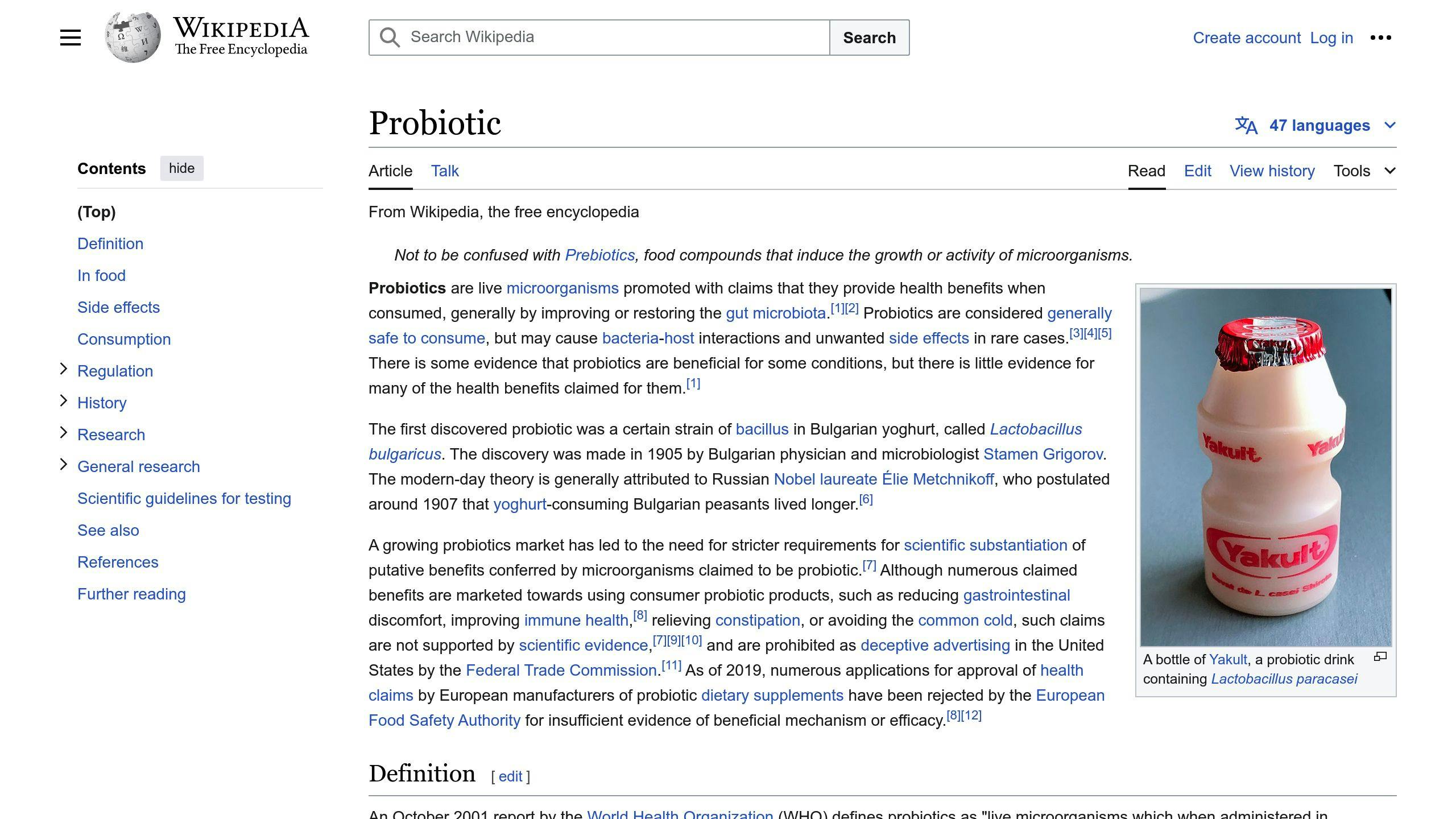
What They Are
Probiotics are live, helpful bacteria that offer health perks when consumed. They are called "good" bacteria because they help keep a healthy balance of gut bacteria. Probiotics aid digestion, boost immunity, and may even impact brain function.
Food Sources
Great food sources of probiotics include:
- Fermented dairy like yogurt, kefir, and aged cheeses
- Fermented non-dairy foods like sauerkraut, kimchi, miso, tempeh, and kombucha
Supplement Type
When choosing a probiotic supplement, look for products with multiple strains of beneficial bacteria like Lactobacillus and Bifidobacterium. Quality supplements list the specific strains and number of live cultures (colony-forming units or CFUs) per serving.
Dosage
There’s no one-size-fits-all dosage. But most experts suggest at least 10 billion CFUs per day for general health benefits.
Potential Benefits
For CFS/ME, adding probiotics to your diet or taking a quality supplement may offer:
-
Better gut health: Probiotics can restore the balance of good gut bacteria, often disrupted in CFS/ME. This aids nutrient absorption and reduces gut issues.
-
Stronger immunity: Much of the immune system is in the gut. Promoting a healthy gut microbiome with probiotics supports overall immune function, often weakened in CFS/ME.
-
Less inflammation: Some probiotic strains have anti-inflammatory effects, which may ease chronic inflammation linked to CFS/ME.
-
Improved brain function: Research suggests the gut-brain connection impacts cognitive function and mood. Supporting gut health with probiotics may reduce brain fog and boost mental clarity in CFS/ME.
While more research is needed, adding probiotics to a comprehensive treatment plan may benefit gut health, immunity, and overall well-being for CFS/ME.
10. Vitamin C
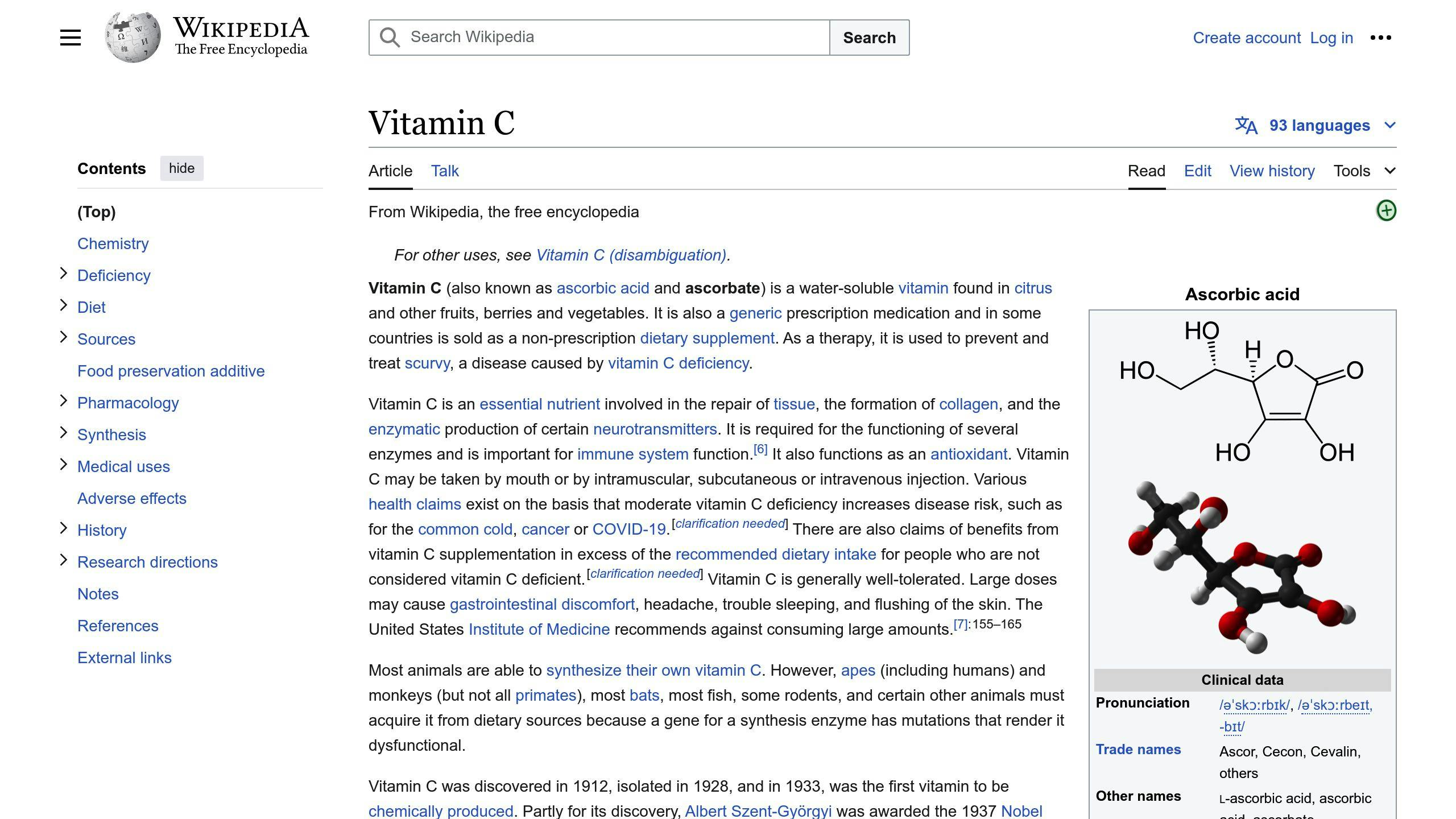
What It Is
Vitamin C is a water-soluble vitamin that acts as an antioxidant in the body. Humans cannot produce vitamin C, so it must come from food or supplements.
Food Sources
Great sources of vitamin C include:
- Citrus fruits (oranges, grapefruits, lemons, limes)
- Strawberries
- Bell peppers (red, yellow, green)
- Broccoli
- Tomatoes
- Kiwifruit
- Brussels sprouts
Supplement Type
Vitamin C supplements usually come as ascorbic acid, the most stable and easily absorbed form. Other forms include sodium ascorbate, calcium ascorbate, and ascorbyl palmitate.
Dosage
The daily recommended intake is:
- 75 mg for women
- 90 mg for men
For CFS/ME, many experts suggest 500 mg to 2,000 mg per day, split into multiple doses.
Potential Benefits
Vitamin C may offer these benefits for CFS/ME:
-
Immune support: Helps the immune system work properly by promoting white blood cell and antibody production.
-
Reduced inflammation: As an antioxidant, it can neutralize free radicals and lower oxidative stress linked to inflammation.
-
Improved energy: Plays a role in producing carnitine, which helps turn fatty acids into energy.
-
Adrenal support: The adrenal glands need vitamin C to make hormones like cortisol, which helps manage stress and fatigue.
-
Wound healing: Needed for collagen formation, which aids in healing wounds and injuries.
While more research is needed, vitamin C may help ease some CFS/ME symptoms by supporting immunity, reducing inflammation, and promoting overall health when part of a comprehensive treatment plan.
Summary
Proper nutrition plays a key role in managing the symptoms of Chronic Fatigue Syndrome/Myalgic Encephalomyelitis (CFS/ME). While there’s no one-size-fits-all approach, incorporating certain nutrients can provide support. However, it’s crucial to work closely with healthcare providers to develop a personalized nutrition plan tailored to your specific needs and monitor nutrient levels.
The following ten nutrients are important for various bodily functions, including energy production, immune support, and reducing inflammation:
1. Vitamin B12 2. Magnesium 3. Omega-3 fatty acids 4. Coenzyme Q10 5. Vitamin D 6. L-carnitine 7. Zinc 8. Iron 9. Probiotics 10. Vitamin C
Each individual may benefit from different combinations and dosages based on their unique circumstances.
While dietary sources are preferable, supplements can help fill nutritional gaps. However, it’s essential to consult with a qualified healthcare provider before starting any supplement regimen, as improper dosages or interactions can potentially cause harm.
| Nutrient | Key Functions | Potential Benefits for CFS/ME |
|---|---|---|
| Vitamin B12 | Red blood cell production, DNA building, nerve health, energy production | Reduced fatigue, improved cognitive function, nerve support |
| Magnesium | Muscle function, energy production, nerve transmission | Improved muscle function, reduced cramps, better sleep, reduced anxiety/depression |
| Omega-3 fatty acids | Reduce inflammation, brain health | Reduced inflammation, improved brain function, decreased pain |
| Coenzyme Q10 | Energy production in cells | Improved energy levels, enhanced exercise tolerance, cardiovascular support |
| Vitamin D | Immune regulation, bone health, anti-inflammatory | Improved immune function, reduced fatigue, reduced inflammation |
| L-carnitine | Fatty acid metabolism, energy production | Improved energy levels, enhanced muscle function, cognitive support |
| Zinc | Immune function, wound healing, DNA building | Stronger immune system, better wound healing, reduced oxidative stress |
| Iron | Oxygen transport, energy production | Boosted energy, improved brain fog, supported immunity, increased endurance |
| Probiotics | Gut health, immune function, anti-inflammatory | Better gut health, stronger immunity, reduced inflammation, improved brain function |
| Vitamin C | Antioxidant, immune support, energy production | Immune support, reduced inflammation, improved energy, adrenal support, wound healing |
FAQs
What vitamins and minerals are often low in ME/CFS?
People with ME/CFS frequently have low levels of:
- B vitamins (especially B1, B12)
- Vitamin C
- Magnesium
- Sodium
- Zinc
- L-tryptophan
- Carnitine
- Coenzyme Q10
- Omega-3 fatty acids
Getting enough of these nutrients through diet and supplements may help manage symptoms.
Can a nutritionist help with chronic fatigue syndrome?
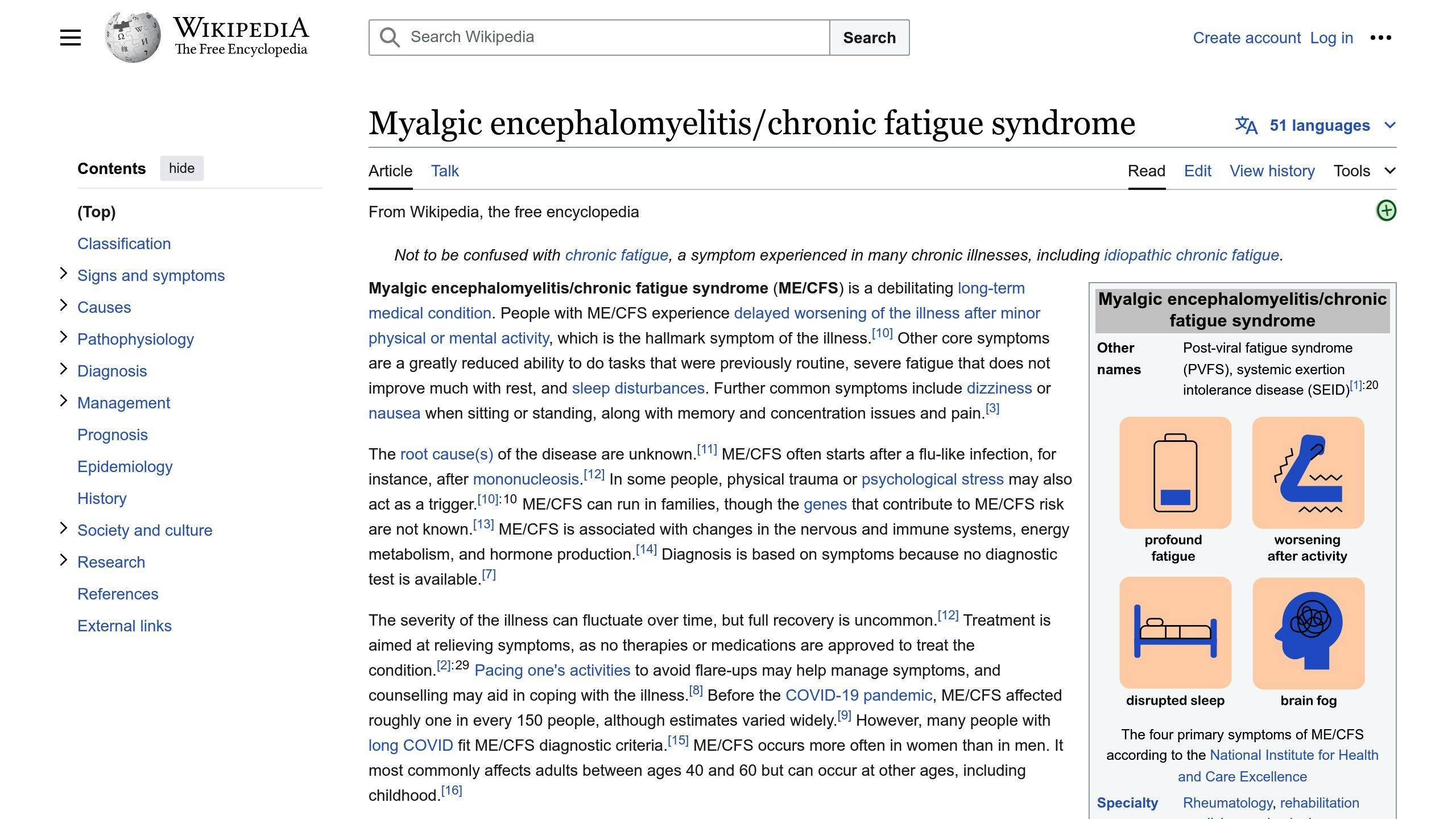
Yes, working with a nutritionist can be very helpful for ME/CFS. A nutritionist can:
- Assess your diet and identify nutrient gaps
- Create a meal plan tailored to your needs and symptoms
- Recommend supplements to fill nutritional gaps
- Provide guidance on managing food intolerances
- Suggest strategies for eating smaller, more frequent meals to boost energy
A nutritionist can optimize your diet to support symptom management and overall well-being.
Can certain foods worsen ME/CFS symptoms?
Some foods may trigger or worsen symptoms in people with ME/CFS, such as:
| Food/Ingredient | Potential Issue |
|---|---|
| Caffeine, alcohol | May increase inflammation and stress |
| Refined carbs, sugars | Can lead to energy crashes, blood sugar swings |
| Processed foods, additives | May contribute to inflammation, digestive issues |
| Gluten, dairy | Potential triggers for those with sensitivities |
However, food sensitivities vary. It’s important to identify and avoid any personal trigger foods that worsen your symptoms.
Related posts
- Macronutrient Balance for CFS/ME Energy
- Antioxidants for CFS/ME: Benefits, Diet Tips
- 10 Nutrition Tips to Manage Chronic Fatigue Syndrome
- Hydration Guide for CFS/ME: Tips & Essentials


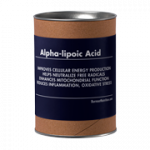
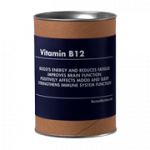
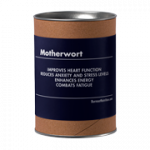

Leave a Reply